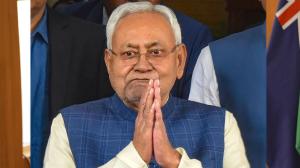
An Indian-origin neurosurgeon in the United States has been fined over $2 million for submitting fraudulent claims related to surgeries, according to attorney Alamdar S. Hamdani. Dr. Rajesh Bindal, 53, based in Houston, was accused of defrauding Medicare and the Federal Employees Health Benefits Program (FEHBP).
Dr. Bindal, who worked at the Texas Spine & Neurosurgery Center PA, allegedly billed for complex surgical procedures involving electro-acupuncture device implants between March 16, 2021, and April 22, 2022. According to the U.S. attorney’s office, these devices were merely taped behind patients’ ears and often detached within a few days. In some cases, the procedures were carried out by a device sales representative or a physician assistant instead of Dr. Bindal, and they were not performed in an appropriate surgical setting.
“A neurosurgeon like Dr. Bindal is fully aware of the distinction between legitimate surgery and merely attaching a device behind someone’s ear,” said US Attorney Hamdani. “Despite being among the highest-paid medical specialists, he prioritized personal profit over integrity and the well-being of his patients.”
Dr. Bindal has agreed to pay $2,095,946 to settle allegations of fraudulent billing for neurostimulator electrode implants, the US attorney's office stated.
The U.S. Attorney’s Office, the Department of Health and Human Services Office of Inspector General (DHHS-OIG), and the Office of Personnel Management Office of Inspector General (OPM-OIG) conducted the investigation. These agencies highlighted the importance of accountability in sustaining trust in federal healthcare programs and shielding beneficiaries from fraudulent activities.
“Healthcare providers must be held accountable for submitting false claims to Medicare, as this is vital for maintaining public trust and protecting critical resources,” stated Jason E. Meadows, Special Agent in Charge at DHHS-OIG.
“False claims impact not just federal healthcare programs but also the members who depend on these programs for necessary medical care,” added Derek M. Holt, OPM-OIG Special Agent in Charge.












